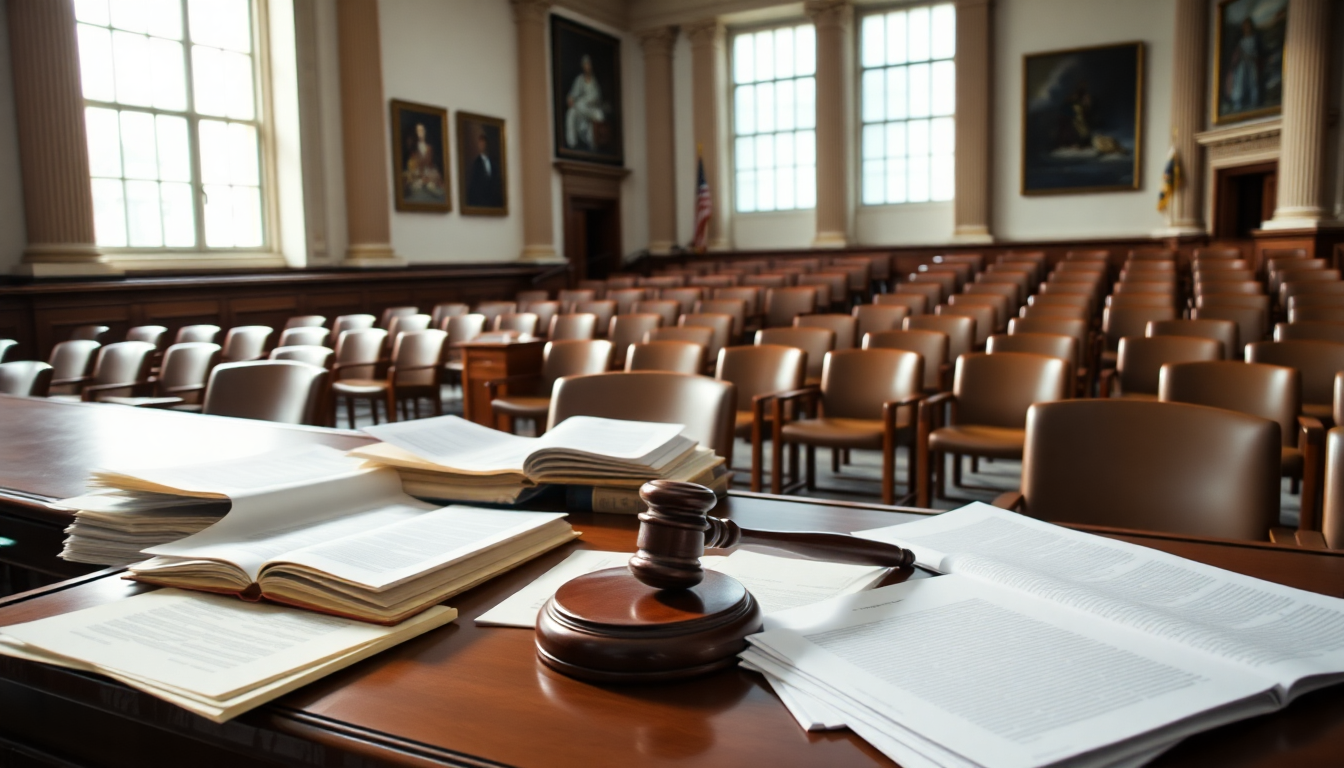Table of Contents
Recent developments in the legal arena have sparked some serious debates over Alina Habba’s role as the acting United States Attorney for the District of New Jersey. A federal judge has ruled that her appointment was unlawful, raising questions not just about Habba’s position but also about the broader implications for the Trump administration.
What does this mean for the future of federal appointments and the balance of power between political entities and judicial oversight?
The Court’s Ruling and Its Implications
On Thursday, District Judge Matthew Brann made headlines with a ruling that challenged the Trump administration’s efforts to keep Habba in her role, despite previous legal setbacks.
He pointed out that Habba hasn’t been officially confirmed by the U.S. Senate, which is a crucial factor in his decision. Judge Brann’s ruling highlighted some unconventional legal strategies the administration tried to use to maintain her position, strategies he found unacceptable.
This ruling significantly shifts the power dynamics within the Trump administration, especially regarding how federal officials are appointed. By declaring that Habba’s actions since July 1 could potentially be void, the judge stressed the importance of following established federal procedures when it comes to appointing U.S.
attorneys. It’s worth noting that this legal challenge emerged directly from defendants in cases she was prosecuting, showcasing the real-world impact of her appointment on ongoing legal proceedings.
Legal representatives for one of the defendants, Cesar Humberto Pina, praised the judge’s decision, sending a strong message about the importance of respecting the appointment process.
As they put it, “Prosecutors wield enormous power, and with that comes the responsibility to ensure they are qualified and properly appointed.” This sentiment echoes a broader concern about the potential for political influence in judicial matters, especially in high-stakes cases involving powerful figures.
Isn’t it crucial that our legal system remains above political games?
Political Ramifications and Ongoing Tensions
As this legal drama unfolds, it’s clear that the ruling will escalate the ongoing tensions between the Trump administration and the judiciary. President Trump has been vocal in his criticisms of the judicial system, often alleging bias against him and his associates. This latest ruling only reinforces the idea that the judiciary is prepared to push back against what it sees as executive overreach, particularly concerning legal appointments.
While Habba waits for a Senate confirmation hearing, her interim position hangs by a thread. Federal law limits interim appointments to 120 days unless a judge approves an extension, a measure designed to prevent uncertainty in vital government roles. However, the Trump administration quickly rejected the July 22 ruling, insisting on Habba’s continued tenure. What does this tell us about their commitment to maintaining control over legal strategies?
Adding to the complexity, Habba’s close ties to President Trump—having previously served as his personal attorney—raise eyebrows. Her political aspirations, like her comments about “turning New Jersey red,” lead to concerns regarding the impartiality expected from her role. Could her prosecutions be swayed by partisan motivations, particularly in cases involving political figures?
Looking Ahead: The Future of the Appointment
The road ahead for Alina Habba is anything but clear. With the Trump administration gearing up to appeal Judge Brann’s decision, the outcome will likely hinge on the balance between political ambition and adherence to the law. As this legal saga continues, it’s essential to keep an eye on how it affects not only Habba’s future but also the larger implications for judicial independence and the integrity of federal appointment processes.
The legal community is watching closely, as this case could set important precedents regarding the appointment of federal prosecutors and the extent of executive power in making such appointments. The stakes are high for future administrations, who will need to navigate the tricky waters of political strategy and judicial oversight. Ultimately, how this situation resolves will play a crucial role in shaping the political and legal landscape in the United States. Are we witnessing a pivotal moment for the future of governance?





